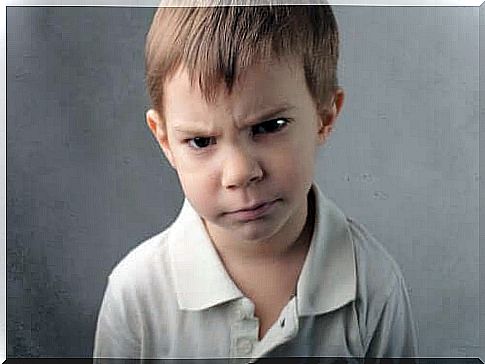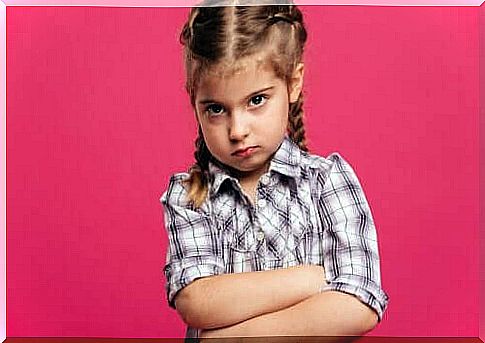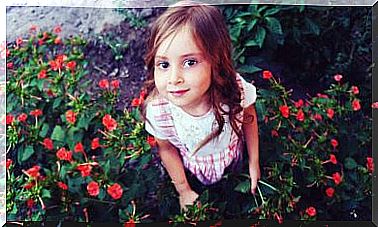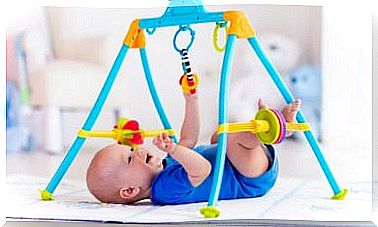Children Who Get Angry About Anything

Children who get angry about anything need special attention and care, as this response can hide unknown internal problems. We will develop this subject further later in this article.
Anger
Anger is a basic human emotion that arises because of a disagreement in a given situation. Children are governed by their emotions and all its manifestations are experienced by them with great intensity.
In the case of anger, it’s not bad that they feel this emotion. The problem arises when the behavior generated by this anger is harmful or pervasive.
Children who get angry about anything
If we stop and look carefully, we can find the cause for this reaction in the moments immediately before. An unexpected response, an unmet need, a caress or attention not received or given to another person, etc., may be the reasons that trigger a new angry reaction in the child.

It is very important to pay special attention to these cases, as this ongoing anger is not normal or healthy. It will be important to start, alone or with professional help, a process of analyzing the child’s personal situation to detect which aspects can generate these frustrated responses.
Causes that can make a child continually angry
There are several possible causes for this behavior:
- A current stressful situation : the birth of a sibling, a divorce, going to school, exams, etc.
- An ongoing (and often normalized) situation of physical or psychological abuse. These experiences cause two responses in children: learned vulnerability or attack. In the latter case, children externalize anger with the people who caused the damage and can generalize this response to any other situation they deem to be a threat.
- Situations of abuse or stress that the mother experienced during pregnancy and the first years of creation. This experience generates an emotional dull reaction in children and an automatic response of distrust and attack in the face of possible hostile situations.
- A familiar response pattern based on frustration and anger. Children learn through imitation, adopting the familiar response pattern and generalizing it in situations that generate discomfort.
- Others.
How Can We Help Children Who Get Angry
To intervene in these cases, it is recommended that the different areas involved in the child’s life (mainly family and school) implement a series of responses in a coordinated way to accompany the child in the satisfactory resolution of their problem.

The main recommendations would be:
- Adopt a respectful and calm attitude. From the example itself, show a new answer alternative. Responding to anger with more anger reinforces the child’s initial response.
- Show interest in her, her emotions and her personal interpretation of the situation. This will allow us to understand their behavior a little better and also provide emotional support, in many cases one of the main causes of these behaviors.
- Offer and encourage finding healthier and more respectful response alternatives: relaxation and breathing techniques, choosing objects to release anger, stories that address the problem, etc.
- Clarify the boundaries: she can express her anger without hurting anyone and without destroying anything.
- Encourage Emotional Self-Awareness: When the child is able to respond without getting angry, it is important to reinforce his new behavior and ask him to notice how he feels compared to how he feels when he is angry.
- Observe which situations generate the response to avoid them or, if they occur, offer the established alternatives. So, little by little, the child will internalize the new responses.
- Encourage empathy. In cases where children release their anger through aggression, it is important to work with them so they can understand how the abused person feels (“How do you think X is feeling right now?”, “Do you feel good about see her like that?”, etc.).
Conclusion
Intervening in the cases of children who get angry about anything is a crucial issue, both to favor their adaptation to the environment and the tranquility of their families and teachers, and to avoid greater problems of social and emotional maladjustment in the long run.
Doing so will provide these children with healthier resources to manage their emotions and successfully resolve any issues that may arise in their lives. In the face of frustration, anger will no longer be the automatic response, and your mental health will be rewarded.






